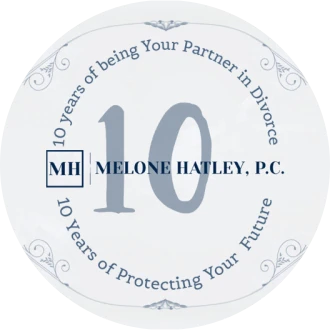In general terms, a conservator is responsible for managing an incapacitated person’s financial affairs. A guardian is appointed to make broader decisions focusing on the incapacitated person’s personal and medical decisions.
If an adult can no longer manage their personal affairs, the court will appoint a substitute decision–maker.
An adult who lost their ability to make decisions related to their finances, medical treatment, or other personal issues is legally referred to as “incapacitated.” A guardianship and conservatorship lawyer in Virginia can help when an incapacitated person (the ward) can no longer take care of their own affairs.
Defining and Incapacitated Person
An incapacitated person is an adult whom the Circuit Court in Virginia has determined cannot effectively receive or evaluate information or appropriately respond to people, events, or environments.
This finding requires assessments by medical professionals, typically two physicians or one physician and a licensed psychologist, to confirm the individual’s inability to meet essential needs related to health, care, safety, or financial matters.
This incapacity prevents the individual from meeting essential needs related to health, care, safety, therapeutic requirements, or financial affairs without assistance. In such cases, a guardian or conservator may be appointed to provide necessary support or protection.
Poor judgment alone is not sufficient evidence to deem an individual incapacitated. In Virginia, as in most states, simply showing that someone is making bad decisions is not enough. To show that someone is “incapacitated,” the person must be unable to understand the difference between a good decision and a bad one.
Schedule your free meeting with our team today to see if our Lawyers can help you.
Defining the Role of a Guardian
A guardian can be any competent adult, often the ward’s spouse, another family member, or even a close friend, who is appointed by the court and is responsible for the incapacitated person’s personal affairs.
If no one close or related to the ward is available, the court will appoint a “professional” guardian or sometimes an agency. A guardianship may include the authority to make decisions regarding support, safety, education, medical treatment and therapy, and overall care. Depending on the court order, it can also include where and how they live.
In Virginia, the guardian’s main role is to oversee healthcare decisions and medical treatment. A guardian may have access to medical records, speak with healthcare providers, and make healthcare decisions.
Defining the Role of a Conservator
Like a guardian, a conservator is a person appointed by the court to manage and be responsible for the personal finances and estate of the person deemed incapacitated. They are entrusted to make these financial decisions with the best interests of the incapacitated party in mind.
Conservatorship is often quite broad. A conservator may enter into contracts or even file lawsuits on the ward’s behalf.
Click to contact our family lawyers today
When Is It Necessary to Have a Guardian or Conservator?
When the Virginia Circuit Court appoints a guardian or conservator, the incapacitated person loses certain legal rights.
This measure is only taken after all less restrictive alternatives have been proven ineffective. Guardianship or conservatorship should be a last resort, used to protect individuals who cannot safely manage their affairs.
For the court to consider the appointment of a guardian, the incapacitated party must meet at least one of the following conditions:
- They may reach a point in their lives where they can no longer make decisions for themselves. This means that they have reached a point in their lives, either due to disease, age, or injury, where they cannot take the information they are given and make a well-informed decision. This could mean decisions on financial matters or their own healthcare.
- Exhibit signs of memory loss or changes in their health over time.
- They have lost the ability to care for themselves independently, including, but not limited to, bathing, dressing, toileting, and eating.
- Display the loss of ability to properly manage their lives for themselves, such as their finances, their property, or to provide adequately for themselves.
Schedule a call with one of our client services coordinators today
Types of Guardians and Conservators
The scope of authority of a guardian or conservator can range from full guardianship with no limitations to make decisions for the ward to limited conservatorship, where help is needed for only specific items. There are several types of conservatorship and guardianship levels in Virginia, including:
- Full guardianship
- Limited guardianship
- Emergency order for adult protective services
- Standby guardian
- Full conservator
- Limited conservator
Taking on full guardianship or conservatorship should not be done lightly, and it should be done only as a last resort. Because this involves a profound loss of freedom, Virginia law requires that guardianship and conservatorship be imposed only when less restrictive alternatives have been proven to be ineffective. These may include:
- Power of attorney
- Representative or protective payee status
- Revocable trust
Filing for Guardianship and Conservatorship
If no power of attorney is in place, the only way to gain authority over an incapacitated person is through guardianship and conservatorship proceedings in the Circuit Court. In these proceedings, a judge decides whether the person is incapacitated and appoints an appropriate guardian or conservator.
A guardian’s authority can be broad or limited in nature and duration. Authority may be limited depending on the ability of the incapacitated person to take care of his own personal, health, and safety needs. The extent or limitations of authority will be enumerated in the court’s order.
Similarly, a conservator’s authority may be broad or limited in nature. The court may grant authority over all of the ward’s financial affairs, or the conservator may only be permitted to exercise authority over one account for limited purposes.
After a Petition for Guardianship or Conservatorship Has Been Filed
Once you file a guardianship or conservatorship petition in a Virginia Circuit Court, the court will appoint a Guardian Ad Litem (GAL) to represent the best interests of the incapacitated individual.
The GAL’s primary responsibility is to investigate and report on the condition of the incapacitated person to the court, ensuring that all recommendations reflect the person’s best interests under Virginia law.
The GAL will also provide the individual with a copy of the petitions and clearly explain their rights throughout the legal proceedings, ensuring transparency and protection.
Alternatively, the incapacitated party may elect to hire an attorney to advocate on their behalf during these proceedings. Once the GAL has completed its investigation, the court will schedule a hearing to decide on the petition.
Before being declared incapacitated by the court, the respondent can still act on their own behalf, including requesting a jury trial, presenting evidence at the hearing, and confronting and cross-examining witnesses. Under the standards set in Virginia Code 64.2-2007, the court will consider:
- The respondent’s limitations
- The respondent’s maximum level of self-reliance and independence
- Whether there are less restrictive options available to address the issues
- The respondent’s need for protection against neglect, exploitation, or abuse
- The issues that will need to be handled by the guardian or conservator
- Whether the proposed guardian or conservator is a suitable fit for the role
- The respondent’s best interests
Following a hearing, the court may order the appointment of a guardian and conservator while giving deference to the respondent’s wishes. The guardian and conservator must file reports each year concerning the ward’s physical condition and financial status.
When a guardian and conservator are appointed, the ward essentially loses all rights to make their own decisions, which is why this option is only used as a last resort when other avenues have been exhausted.
If your loved one is incapacitated, you should reach out to a lawyer to determine whether guardianship and conservatorship are an option.
Get Help from a Leading Family Law Firm
If you feel a friend or loved one needs outside help, understanding the difference between a guardian and a conservator can be essential. When a guardian or conservator is needed, it is best to contact an experienced attorney.
The knowledgeable lawyers at Melone Hatley, P.C. can explain the process and provide legal support throughout.
Contact us today for more information and to see if the guardianship or conservatorship process could help your situation. We can assist you in making the right choice for a guardian or conservator in Virginia to care for your loved ones.
Review our client testimonials to better understand the service we provide, then schedule a free case evaluation.
Schedule a call with one of our client services coordinators today.




